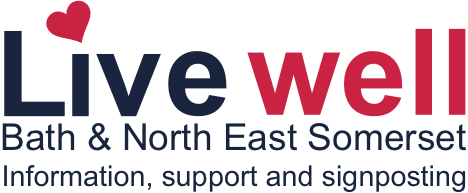If you suspect that your child may be autistic, or is displaying features of autism, your first step would be to speak to your:
- Health Visitor
- Nursery manager / SENCo (Special Education Needs Co-ordinator)
- School teacher / SENCo
After speaking to any of the above professionals, they may refer you to any of the following services within Bath and North East Somerset:
- B&NES Community Health Services (HCRG) Neurodevelopmental Pathway service
- Speech and Language Service
- Child and Adolescent Mental Health Service (CAMHS)
- Local Children’s Centres Bright Start Children's Centres in B&NES offer a range of services to families with young children, including to families of young people with Special Educational Needs and/or Disabilities.
B&NES Community Health Services (HCRG) Neurodevelopmental Pathway provides an assessment-only service for children and young people who are showing possible signs of autism and/or Attention Deficit Hyperactivity Disorder (ADHD). The service covers Bath and North East Somerset (B&NES) and Wiltshire.
The service is a team of Neurodevelopmental Practitioners including, a Clinical Psychologist, Consultant Community Paediatricians, Specialist Speech and Language Therapists and Specialists Nurses. Care Navigators will also offer support during the assessment pathway. They all have experience of working with neuro-divergent children and young people.
Find out more about the Neurodevelopmental Pathway or watch the steps of the Neurodevelopmental Pathway videos.
In B&NES there is a Single Point of Access route for general enquiries about Community Health Services, or to make a referral, including for an Autism assessment. Contact the Care Coordination Centre:
0300 247 0055
Email: hcrg.bathnesspa@nhs.net
B&NES Parent Carer Forum Neurodevelopmental (ND) Pathway Support Line is a telephone and email support service for parents and carers navigating the ND assessment pathway, offering advice and understanding, including help in completing the needs led profile and submitting a referral for ND assessment.
Some children and young people will have features of autism but not reach the threshold for formal diagnosis. In these circumstances you may be re-offered an assessment at a later date, or a Multi-Disciplinary Team (MDT) meeting may be held to discuss your child's individual needs and how these can be supported. If the assessment conclusion is definitively not autism, this will still enable professionals, parents and carers to determine the level of support your child needs and consider referrals to appropriate support services as determined by the needs of your child.
It's important to note here that if your child does not receive a formal diagnosis, support for their needs will still be provided. You should liaise closely with the professionals who have been involved thus far. They will ensure a unique package of support for you and your child is in place to build on their skills, strengths and any areas needing additional attention, and this is likely to include support from a variety of ongoing support services.
Visit the adults section for information relating to adults receiving an autism diagnosis.
Last updated: 22 January 2025
